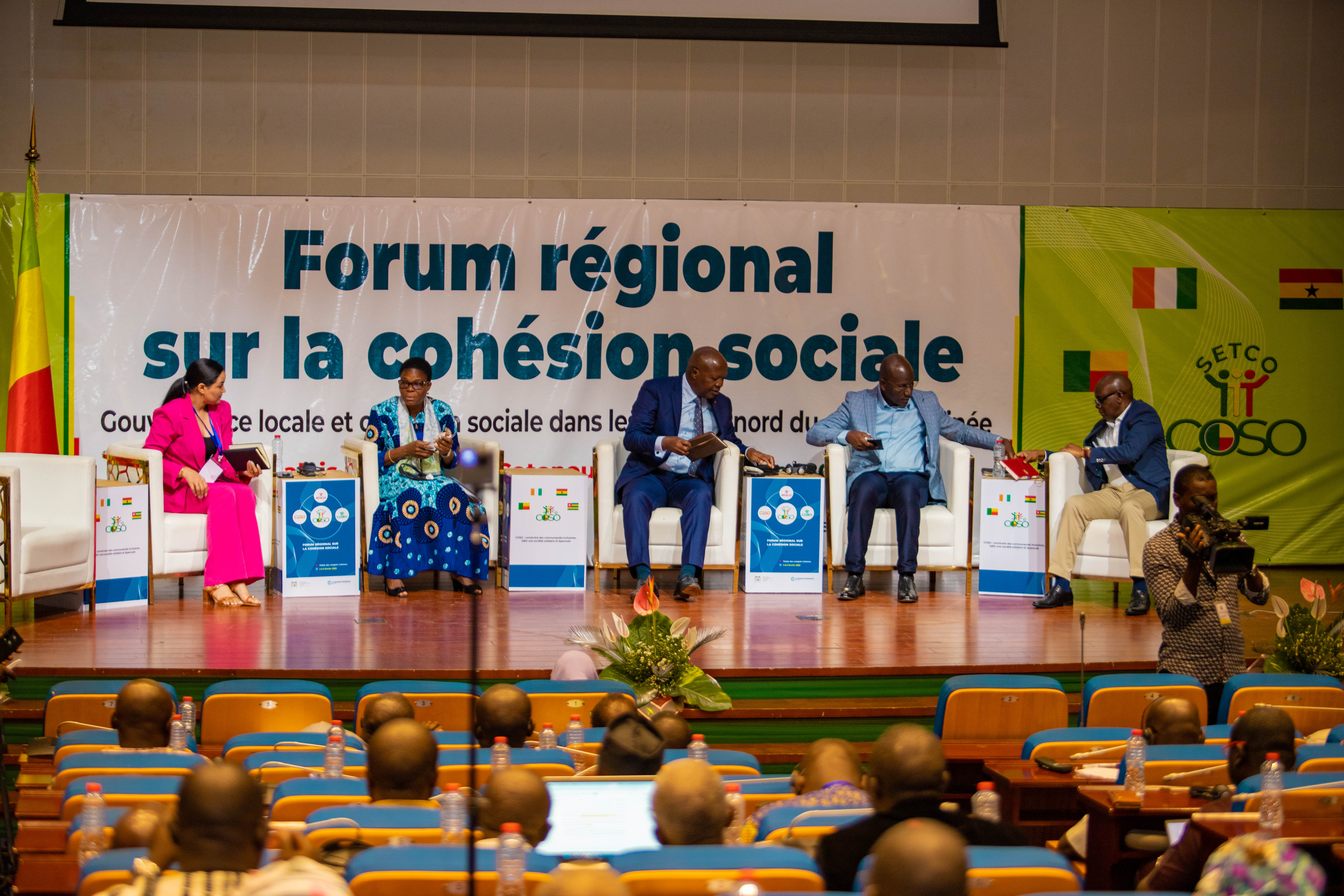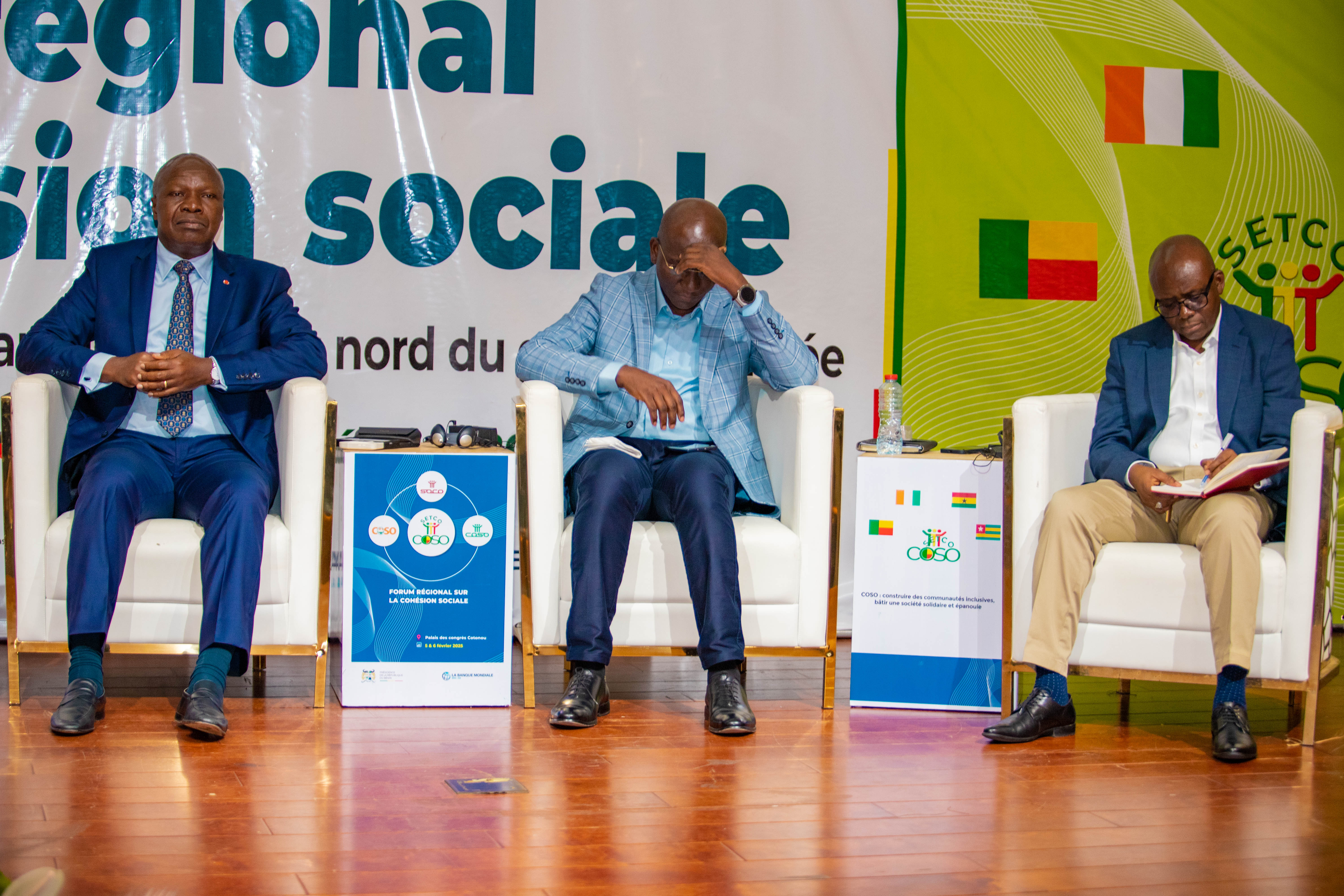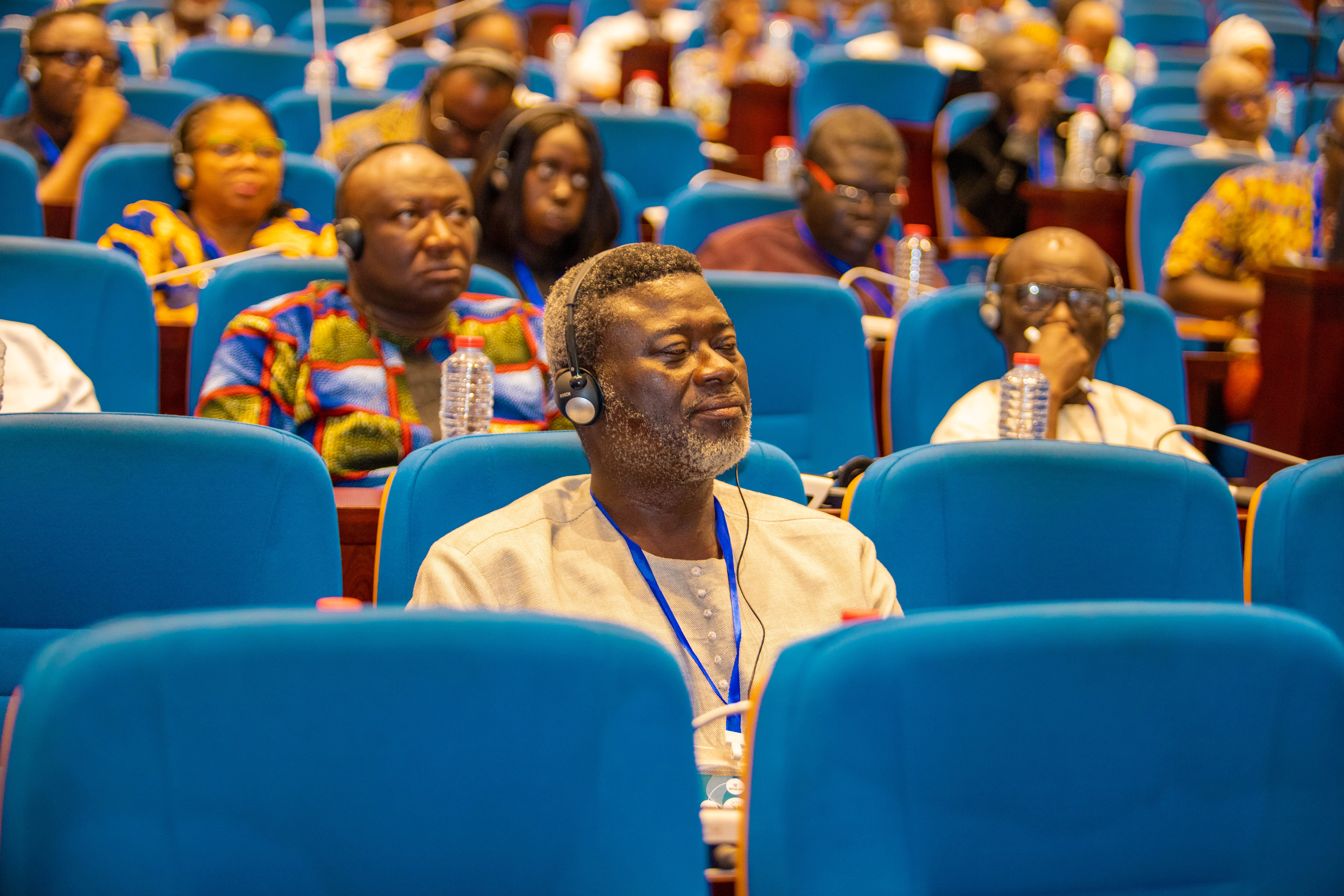The final day of the Regional Forum on Social Cohesion in Cotonou, Benin, concluded with a high-level panel discussion focusing on strategies to strengthen social cohesion, define joint actions, and chart a sustainable path forward for the Gulf of Guinea Northern Regions Social Cohesion Project (SOCO).
Sitting on the panel, Ghana’s Chief Director of the Ministry of Local Government, Chieftaincy, and Religious Affairs, Mr. Amin Abdul-Rahaman, emphasized the need for a structured and decentralized approach to project implementation. He highlighted that Ghana’s SOCO model integrates all levels of governance, from central government down to local authorities, ensuring efficiency, accountability, and long-term impact.
He also underscored the importance of capacity building for all actors involved in project execution, stating that equipping stakeholders with the necessary skills and knowledge is key to achieving effectiveness at every stage of implementation.
Mr. Abdul-Rahaman further stressed the critical role of Monitoring and Evaluation (M&E) systems in project sustainability. He noted that without a strong M&E framework, tracking progress, identifying gaps, and making necessary adjustments would be difficult, potentially weakening the project’s overall effectiveness.
On regional cooperation, he pointed out that border communities across the four implementing countries face similar challenges—ranging from economic vulnerabilities to security threats—and called for joint strategies and shared solutions to address these common issues. He highlighted that forums like this are essential for knowledge and experience sharing, enabling countries to learn from one another and develop best practices that enhance the overall success of SOCO.
The forum ended with a synthesis of discussions, formulation of key recommendations, and a defined roadmap for the next steps, reinforcing the commitment of Ghana, Benin, Côte d'Ivoire, and Togo to sustaining the impact of the SOCO Project through enhanced collaboration, knowledge-sharing, and strong governance frameworks.
SOURCE: Darling Maame Efua Cann
(Public Relations Unit MLGDRD)


.jpg)
.jpg)

